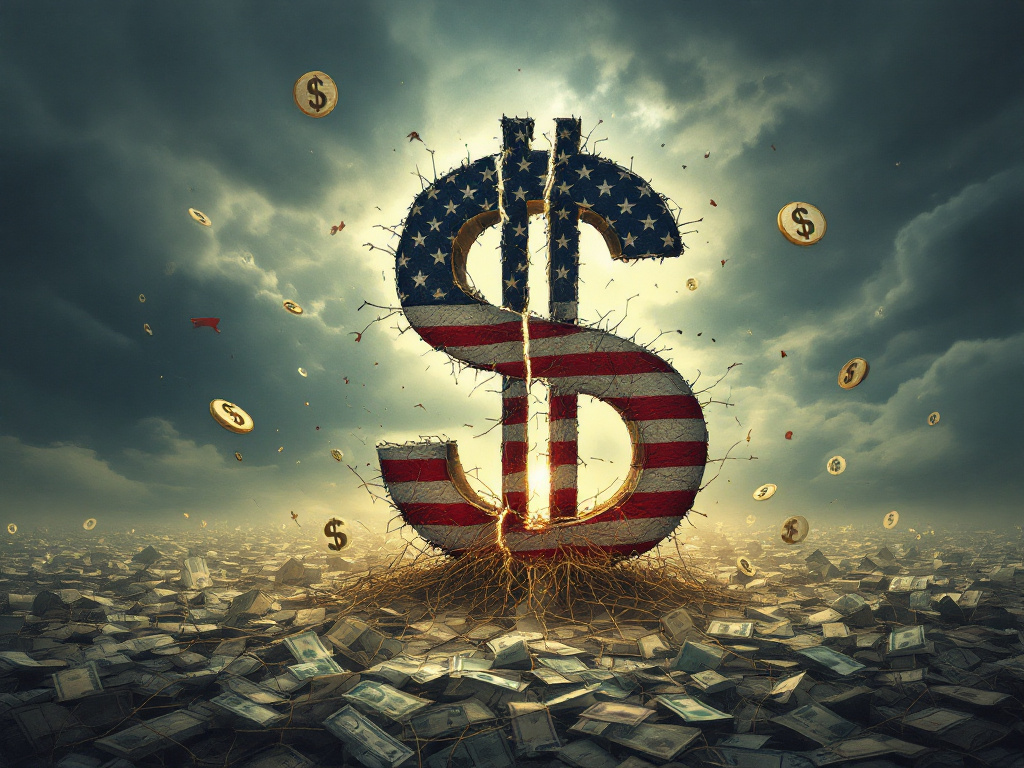Articles in this Cluster
18-04-2025
The article discusses how a potential second Trump presidency could undermine the US dollar's global dominance. Traditionally, during times of financial panic, US stocks and bond yields fall while the dollar rises. However, this relationship may be changing. The article explores the possibility that Trump's policies could erode confidence in the dollar and create an opportunity for other currencies, such as the euro, to gain global traction.
18-04-2025
The article discusses various topics related to finance and economics, including the impact of US trade policies under Trump, the potential decline of the dollar's global dominance, and the effects of a possible trade war between the US and China. It highlights how America's protectionist policies are affecting global trade, with South-East Asia being particularly vulnerable. Additionally, it examines the potential consequences of a decline in the dollar's value, including the impact on America's finances and the potential rise of alternative currencies like the euro.
18-04-2025
The article "Hell is other people's currencies" discusses the dominance of the US dollar as a global reserve currency, referencing Kenneth Rogoff's new book "Our Dollar, Your Problem". It highlights the unlikely prospect of alternative currencies, such as the rouble, becoming a global reserve currency, despite past predictions of the Soviet economy's growth. The article touches on the potential vulnerabilities of the dollar and the implications of its decline, referencing the Trump administration's policies and their possible impact on the global economy.
18-04-2025
Donald Trump's administration has faced financial turbulence, including a sell-off in stocks and bonds, which Trump has downplayed as "getting a little bit yippy" and a "transition cost" on the path to rebuilding the American economy. Trump claims that short-term pain will lead to long-term gain, but the article questions the validity of this assertion, highlighting the potential negative consequences of his policies, such as outdated infrastructure and reduced investment.
18-04-2025
Donald Trump is criticizing Federal Reserve Chairman Jerome Powell, threatening to fire him if he wants to, after Powell warned that Trump's tariffs could cause inflation and higher unemployment. Trump is furious that Powell has not lowered interest rates as quickly as he wants, and is seeking a scapegoat in case his trade war strategy fails. Powell has paused rate cuts amid economic uncertainty, which has been exacerbated by Trump's policies. Senator Elizabeth Warren argued that Powell's independence is crucial to the US financial system and that firing him would crash markets. Trump's attacks on Powell belie the Fed chair's steady stewardship of the economy, including steering inflation down without triggering widespread unemployment. Trump's actions are seen as a threat to the independence of the Federal Reserve, which was set up to be insulated from political pressure.
18-04-2025
President Trump is attempting to exert control over the Internal Revenue Service (I.R.S.), threatening to revoke the tax-exempt status of Harvard University and other institutions he perceives as adversaries. Trump's actions have raised concerns among tax experts and former I.R.S. officials, who warn that politicizing the agency could lead to a loss of public trust and undermine the government's ability to collect revenue. The I.R.S. is now considering whether to revoke Harvard's tax exemption, a process that could be lengthy and potentially appealed in court. Trump's history with the I.R.S. includes attempts to minimize his tax liability and using the agency to target his perceived enemies. His administration has also pressured the I.R.S. to share data with Immigration and Customs Enforcement, sparking concerns about taxpayer privacy. Experts fear that Trump's actions could shake the foundations of American civic life and lead to increased noncompliance with tax laws.
